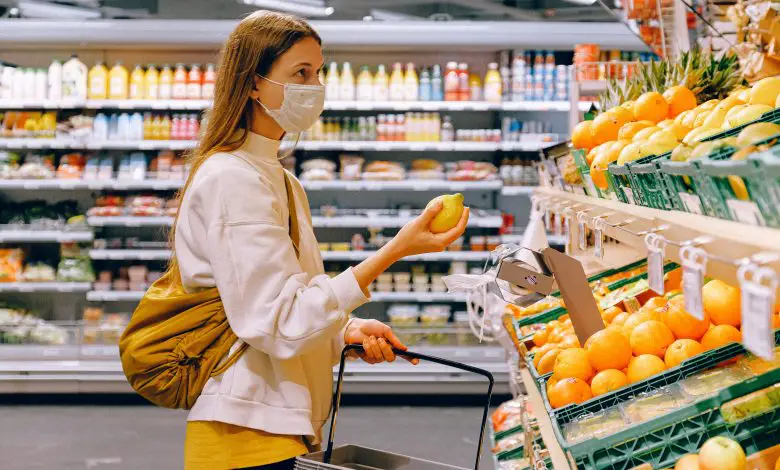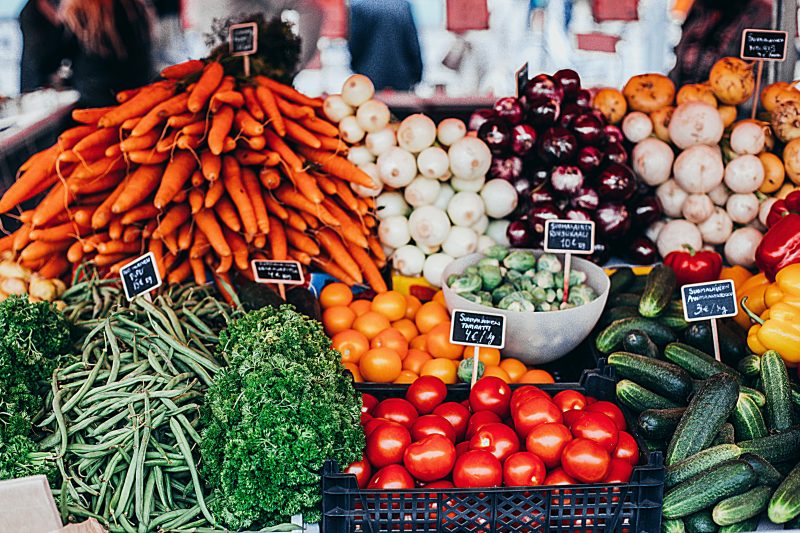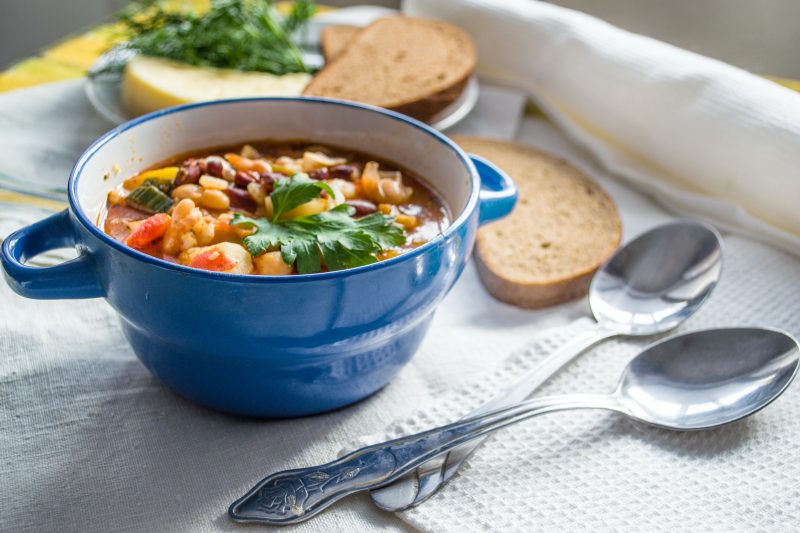
Nutrition expert on staying healthy amid the coronavirus outbreak
Tracy Williams, who has cerebral palsy, chronic pain and chronic obstructive pulmonary disease, has a degree in Nutrition and Dietetics and writes articles for her website, Tracy’s Plate. She regularly partners with disability organisations and conventions for speaking engagements on nutrition. Here she gives an overview of ways you can stay healthy during the coronavirus epidemic.
 We are living in a scary time of quarantine due to the coronavirus. It is especially scary if you have disabilities or have underlying lung and heart conditions, which may make you more susceptible to this new virus. This is why most of us are staying home more than the non-disabled population and are often reliant on support from our friends and family.
We are living in a scary time of quarantine due to the coronavirus. It is especially scary if you have disabilities or have underlying lung and heart conditions, which may make you more susceptible to this new virus. This is why most of us are staying home more than the non-disabled population and are often reliant on support from our friends and family.
Proper nutrition is, therefore, an important component of staying healthy, especially during these uncertain times.
Strengthening your immune system
Some foodie enthusiasts might believe that there is a special food, vitamin and mineral combination that will boost immunity and prevent people from getting the coronavirus.
Sonya Angelone, MS, RDN, spokesperson for the Academy of Nutrition and Dietetics, alters this misconception with true science saying that all macronutrients, vitamins and minerals maintain the immune system directly as well as indirectly.
A strong immune system is one part of complete, all-round health that will help to limit the risk of this virus if you have disabilities and other chronic conditions.
All nutrients are required for optimum or improved health, depending on the personal situation of each individual with a disability or chronic condition.
Nutrients allow metabolic functions to continue and new cells to grow. They give us energy, heal and reproduce cells for the human body.
A balanced diet is one that is based on eating various fruits, veggies, nuts, seeds, legumes and whole grains, as well as a small number of healthy fats and protein-rich food based on personal choices and nutrition needs.

Many people are lacking in nutrients, such as vitamin D, vitamin C and zinc. You can discuss taking supplements with a trusted primary care physician or a registered dietitian nutritionist, who can easily give individual nutrition guidance.
But there are also a number of foods that contain these nutrients.
Vitamin D is in salmon, herring, sardines, cod liver oil, canned tuna, egg yolks, mushrooms, and various fortified food choices.
Vitamin C is in broccoli, cantaloupe, cauliflower, kale, kiwi, orange juice, papaya, red, green or yellow pepper, sweet potato, strawberries, and tomatoes.
Zinc is in whole grains and milk products. Many ready-to-eat breakfast cereals are fortified with zinc. Oysters, red meat, poultry, baked beans, chickpeas, and nuts also contain zinc.
Food safety concerns
Many dietitians promote the importance of purchasing shelf-stable items during this time of quarantine. Items to stock up on include:
- dried and canned beans and lentils
- canned veggies with no salt added
- dried or canned fruit with 100% natural juice
- pouches or cans of fish or chicken
- nuts, seeds, and nut butters
- various cooking oils
- dried herbs and spices
- frozen foods.
I like to make recipes that can be frozen as well, such as casseroles, soups, muffins and speciality breads. Meals that freeze well can also save time and energy.
Leftover meats and veggies can be mixed by dicing them up and adding them to soups, salads or sandwiches.

It’s important to understand the specific dates that show when products should be used or sold by. These signify product quality and can prevent you from using food that might have gone off.
Mustard, ketchup and salad dressing do not need refrigeration until opening, but often have a ‘use within’ date to show how long they can be kept open for.
The Food Keeper App is a useful resource for finding out how long items can be used for. Throw out any foods that have an odour or a slimy texture.
As it is safer to food shop online if you have an underlying condition or disability, it’s worth planning ahead. Find and review new recipes and make a grocery list of the ingredients needed. Verify what you have and what you need to order online.
Add probiotics to your diet
Some health companies promote the pill form of probiotics to build gut health to boost immunity. Most health professionals, especially registered dietitians, recommend eating certain foods to improve healthy gut ecology before relying on a pill.
Fibre is important for the digestive system. It leaves the stomach undigested and helps keep your digestive system functioning and to prevent constipation.
There are various sources of fibre, including:
- whole-grain bread
- whole-grain pasta
- brown rice
- quinoa
- beans
- nuts and seeds
- fruits and veggies
Probiotics are live bacteria that are beneficial for your digestive system. Foods rich in probiotics include dairy products or other cultured foods, such as yoghurt, kefir, kimchi and fermented veggies. Learning how to practice nutrition label reading is important so you can verify that all items contain live and active cultures.
Stress relief and exercise
Coronavirus has made life stressful for everyone, so doing anything to relieve stress levels is a good thing. I encourage people to follow wheelchair dance videos, listen to music or your home church via Facebook Live.
You can follow your favourite adaptive exercise video from your trusted fitness trainer or fitness studio, while also following a regular sleep and hygiene plan. Stress relief is not always an easy process given the current circumstances and that our disability community is at high risk for the virus, but there are things you can do.
Take a look at Disability Horizons’ article on 7 ways to boost your mental wellbeing during lockdown and beyond.
Healthy eating on a budget
Many people have lost their jobs or had their hours cut due to coronavirus. Added to that, people with disabilities often have to make healthy choices on a strict budget because of being unemployed or relying on assistance from government programs.
Most dietitians, therefore, encourage their clients to focus on the basics. A healthy eating plan may begin with fruits and veggies, which are less expensive when choosing produce in season. Canned fruits and veggies are even more shelf stable as well as less costly.
Focus on black beans, rice, pinto beans, corn, quinoa rice, or tofu. You can then serve fresh, canned or frozen fruits and veggies as a side for a wholesome meal. There are always local resources, such as churches, food banks and other organisations that provide food if you’re struggling during this time of coronavirus.
The Coronavirus is complicated and can affect everyone differently. While following these steps will not help all people avoid coronavirus altogether, taking steps to strengthen your immunity can help people feel better and live healthier lives.

To learn more about Tracy and read other articles she wrote about nutrition, visit Tracy’s Plate.
More on Disability Horizons…
- Cerebral palsy: why a soft diet is perfect for me
- 8 exercise videos for disabled people during isolation
- Coronavirus shopping safely: how to get your food if you’re disabled
- Find kitchen and living aids on the Disability Horizons Shop to help you eat and drink
Originally posted on 02/06/2020 @ 12:25 pm